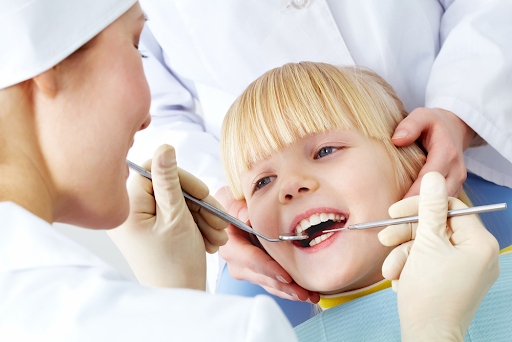
The Importance of Oral Health in Child Development
Oral health is a vital aspect of overall health and development, especially in children. Establishing good oral hygiene habits early on can significantly affect a child's growth and well-being. Regular dental check-ups and proper care can prevent many dental issues from arising as they grow.
According to estimates from Ask the Dentist, it’s noted that around 5-10% of the world's population suffers from an underbite. This condition can lead to serious complications including difficulties in eating, speaking, and even sleep problems. Early detection and intervention are essential to managing these conditions effectively.
Fostering good oral health practices within the family can aid in preventing complications that can hinder a child’s development. Teaching kids to brush their teeth twice daily is a simple but effective way to instill long-lasting habits. When families prioritize dental care, it creates a culture of health that benefits everyone.
The Prevalence of Dental Problems Among Children
Statistics reveal the extent of dental issues faced by children in the United States. According to NYC Health, more than half of American children between six and 19 years old have faced tooth decay at some point. This alarming figure underscores the need for parents to be vigilant about their children's oral health.
The implications of tooth decay can be severe, affecting both physical health and emotional well-being. Children with poor oral health may experience pain, leading to challenges in concentrating at school and participating in activities with peers. Thus, addressing dental issues is critical not just for physical health, but also for academic performance and social interactions.
Dental problems can often lead to missed school days—a reality that affects learning and development. When children need unplanned dental care, lost school hours can accumulate rapidly. According to the Centers for Disease Control and Prevention, approximately 34 million school hours are missed each year due to these unexpected dental visits, showcasing the significant impact of oral health on education.
Building Lasting Healthy Habits
Creating a consistent routine for oral hygiene is crucial for children. Family participation in brushing and flossing together can make it easier and more engaging for children to adopt these behaviors. When children see their parents practicing good oral hygiene, it reinforces positive habits that will last a lifetime.
Incorporating regular visits to the dentist into the family's schedule can also normalize these practices. Children are more likely to view dental care as a standard part of life rather than a chore. This perspective can reduce future anxiety related to dental visits, making it a more pleasant experience.
Educating children about the importance of oral health is equally vital. Engaging them with stories or videos about the consequences of neglecting dental care can make them more invested in their own health. By fostering a positive attitude towards oral health in the family, children can be more motivated to care for their teeth.
Long-Term Implications of Poor Oral Health
The ramifications of inadequate oral care extend far beyond childhood. Poor dental hygiene can lead to long-lasting issues, such as gum disease, tooth loss, and even chronic health conditions. Therefore, instilling good oral health habits early can lead to healthier outcomes throughout adulthood.
Neglecting oral health can affect self-esteem and social interactions in children. Those with dental problems may feel self-conscious about their smiles and could experience bullying or exclusion. This underscores the importance of effective dental care in nurturing not only physical health but emotional wellness as well.
Ongoing education for families about the significance of dental care is crucial. Community programs can support parental efforts by providing resources and workshops on maintaining good oral health. Being informed enables families to make better choices regarding their children's dental care, leading to healthier generations.
Creating a Supportive Environment for Dental Care
Building a supportive environment for oral health requires commitment from the entire family. This includes encouraging children to openly communicate their fears and concerns regarding dental visits. Parents who foster this dialogue demonstrate empathy and build trust, making children feel more secure in seeking help when needed.
Families can collaborate on meal planning to emphasize a diet that supports oral health. Foods rich in calcium and vitamins, like dairy products and fresh fruits, contribute positively to dental wellness. Establishing these dietary habits can further reinforce the importance of oral care.
Creating fun, interactive experiences around dental hygiene—such as using colorful toothbrushes or music during brushing time—can also enhance children's engagement. Involvement in their dental health journey makes children feel important and responsible. Ultimately, when families work together to make oral health a priority, they set the foundation for lifelong healthy habits!



























